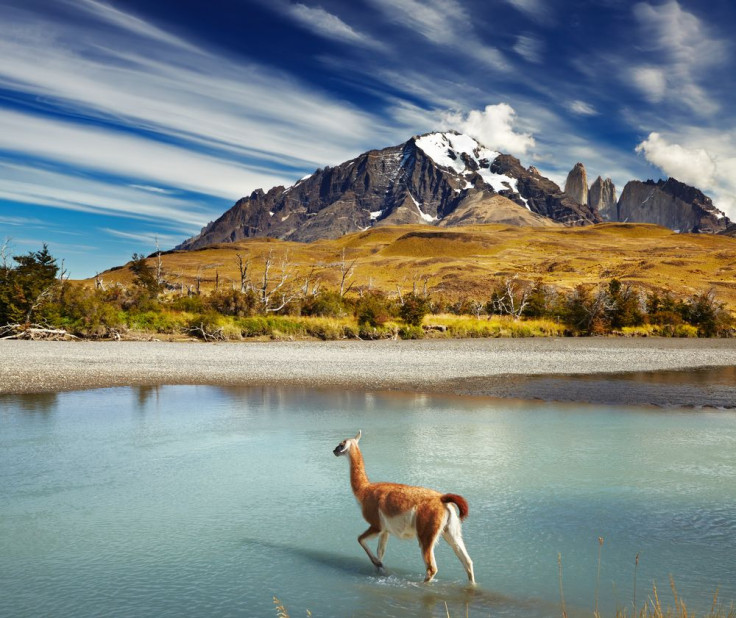
Lake Cachet II is located in the Northern Patagonian Ice Field in Chile and unlike many lakes, it has a unique trick up its sleeve: The lake disappears overnight several times a year. The lake, which measures two square miles of water in the mountainous Aysén region, has the ability to dry up overnight, revealing dry, sandy land. According to Daily Traveler, the disappearance happens twice a year and the culprit is global warming. Essentially, rising temperatures make the glaciars in the glacial lakes weak, allowing for water to tunnel through the ice walls. This causes the water -- an estimated two hundred million cubic liters -- to channel into the Pacific Ocean. The disappearance of the lake is so routine that locals have a system ready -- they have an alert system that monitors the lakes and gives them eight hours to flee to higher grounds, as lake floods have caused mud tsunamis and destroyed homes.
"Patagonia has experienced climate changes at levels much more moderate than those observed in the rest of the world," said glaciologist Andres Rivera at a news conference. Michel Barer, a researcher at McGill University in Montreal, has found that the South American glaciers are losing their water by one percent each year and one facet that adds to the problem is that hot weather in South America. What's more, a report released by the United Nations Environment Programme (UNEP) has found that the glaciers in Chile's souther Patagonia are "losing mass faster and for longer than glaciers in other parts of the world." “Accumulation of science shows us a clear general trend of melting glaciers linked to a warming climate,” said UNEP executive director Achim Steiner, reported Newsweek.
This news is troublesome, to say the least, as it means that another fresh water source is becoming depleted. Worldwide, a mere 2.5 percent of the world's water is fresh and 99.7 percent of that freshwater is in snow, ice, or groundwater. “There is scientific evidence showing a new cycle of activity in GLOFs, and not just Lago Cachet. Glaciers are melting and lakes growing in size throughout Patagonia -- a clear sign of global warming,” said Gino Casassa, director of Glacier and Climate Change Research at the Valdivia, Chile, to Newsweek. A study, published in journal Nature Geoscience, by British and Swedish scientists found that all 350 glaciers in Patagonia (except for two) have been shrinking and the rate of deceleration is acceleration. "We know that many glaciers in South America are retreating, but this one is retreating ten times faster than the land-based glaciers. It shows how sensitive calving glaciers are to warming atmospheric and ocean waters," said Neil Glasser, a British glaciologist and one of the authors of the study.
© 2025 Latin Times. All rights reserved. Do not reproduce without permission.






